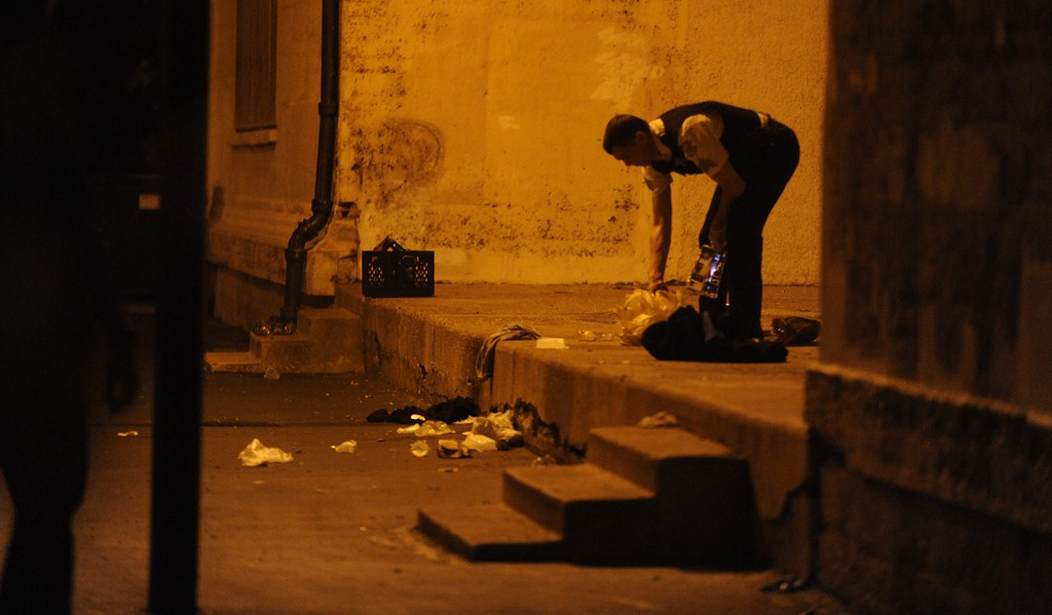Since Tuesday, almost 75 people have overdosed on a rather dangerous batch of heroin, which authorities suspect is laced with fentanyl. The painkiller-laced heroin sent 14 people to Mount Sinai Hospital in Chicago on Friday alone, according to the Chicago Tribune. The Drug Enforcement Administration has stepped in to help Chicago police find the source of the drugs, which have some patients taking two to three doses of Narcan, a drug that reverses the effects of opioids, in order to bring them out of their heroin-induced state. The Tribune added that a similar case with laced heroin occurred in 2006:
In all, nearly 75 people have overdosed in Chicago since Tuesday afternoon from dangerous batches of narcotics, possibly heroin laced with the painkiller fentanyl, according to city health and fire officials. Police were investigating if at least one recent death was caused by a heroin overdose."We suspect what is happening is the same thing that happened in 2006 when people were getting heroin that was cut with fentanyl, which is a very strong narcotic," said Diane Hincks, a registered nurse and emergency room director at Mount Sinai on the West Side. "That's what we think is happening."
By early Friday afternoon, emergency crews had responded to 74 cases over 72 hours, more than double the same three-day period last year, said Larry Langford, spokesman for the Chicago Fire Department.
Hincks said some of the 14 overdose victims treated at Mount Sinai had collapsed as soon as they injected themselves. The hospital typically sees two or three overdoses a day, she said.
Two of Mount Sinai's patients were in intensive care, another was still undergoing treatment, seven had been discharged and a few more were still in the emergency room as of about 3 p.m, Hincks said.
Chicago police said the drugs were purchased primarily at two locations on the West Side, one of them in the North Lawndale community. A sample of heroin recovered by police may have contained fentanyl, authorities said.
Recommended
On top of that, the last weekend of September saw the Windy City experiencing another bloody weekend of shootings that killed four and wounded 52. According to NBC Chicago, it marks the second weekend in a row in which over 50 people were shot. The violence continued into that following Monday–September 28–where 14 people were shot in 15 hours:
According to a Chicago Tribune analysis, at least 2,300 people have been shot in the city so far this year, roughly 400 more than in the same period last year.Last month, the New York Times reported Chicago saw the sixth highest murder rate increase so far this year when compared with other U.S. cities. The report indicated the city had 294 murders by the end of August, a 20 percent increase from 2014. According to Chicago police data, that number rose to 349 as of Sept. 20, up 21 percent from the year before.
Mayor Rahm Emanuel said Tuesday [Sept. 29] that he was "angry" about the recent shootings in the city.
"I'm going to try to control my anger," he said. "We have way too many guns in the city of Chicago."
Originally, many thought Illinois' latest recognition of carry laws, and the implementation of concealed carry, would cut down on the violence. It’s led to predominantly black and Hispanic communities in the city to line up for their respective permits. For a time after the implementation of concealed carry, Chicago’s murder rate dropped to its lowest levels since 1958, and robberies had decreased by 20 percent. Nevertheless, Illinois’ concealed carry laws are restrictive, and the state, overall, isn’t friendly to gun owners. Maybe instead of discussing tougher penalties for people who don’t care about law, Mayor Emanuel should consider loosening the city’s stringent anti-gun laws because the pro-gun control way isn’t working. It’s only making the butcher’s bill longer.

























Join the conversation as a VIP Member